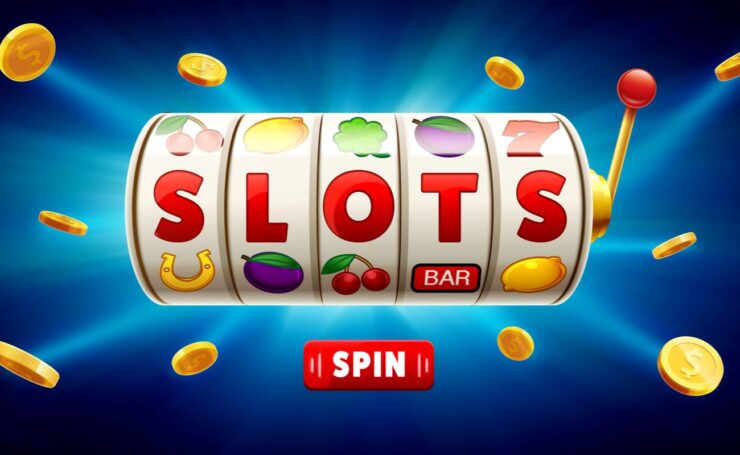In the ever-evolving world of technology, blockchain stands out as a groundbreaking innovation. It is a decentralized, transparent, and tamper-resistant technology at the heart of cryptocurrencies like Bitcoin and Ethereum. Blockchain technology is essentially a distributed ledger, where each block of data is linked to the one before it through cryptographic processes. This unique technology has already started making waves in many sectors, including the gaming industry.
Slot games are a cornerstone of the casino world, both physical and digital. Their simplicity, combined with the thrill of chance, makes them a staple for casual and seasoned gamblers alike. However, traditional slot games face several challenges, such as questions about fairness, security concerns, and a significant reliance on intermediaries.
This is where blockchain technology comes into the picture, offering a fresh perspective on how slot games could overcome these obstacles and improve the gaming experience for players. This article delves into the potential of blockchain to revolutionize slot games, bringing newfound transparency, security, and numerous other benefits.
Transparency and Fairness in Slot Games

One of the most significant issues players face in traditional slot games is the uncertainty surrounding their fairness. They often find themselves asking questions: Are the games rigged? Is the house always winning?
Blockchain technology has the power to quell these doubts through its inherent transparency. With each transaction recorded on a blockchain, players can verify the outcomes of their games themselves. This immutable record of gaming transactions removes the ‘trust’ factor and replaces it with ‘verifiable trust.’ Each spin of the slot game can be traced, and its fairness verified, thereby, eliminating any doubts about game manipulation.
Enhanced Security Features
Security is another area where blockchain technology can dramatically impact slot games. Traditional slot online games are susceptible to hacking attempts and fraud, and player information is often at risk. In contrast, blockchain technology offers robust security features.
By encrypting transactions and using complex algorithms, blockchain makes hacking attempts virtually impossible. Also, by using smart contracts and decentralizing the data, player information is safe, and risk of fraud is significantly reduced. Each spin, win, or loss can be securely stored on the blockchain, creating a secure environment for players.
Moreover, blockchain-based slot games can safeguard player funds by storing them in secure digital wallets, providing an additional layer of security compared to traditional online casinos.
Decentralization and Peer-to-Peer Gaming

Blockchain is inherently decentralized. This means there’s no need for intermediaries such as banks or gaming commissions in the gaming process. This decentralization aspect can revolutionize slot games by offering direct player-to-player betting options, creating a more inclusive and accessible global gaming network.
Without intermediaries, players can bet directly against each other or pool their bets together in a secure and transparent way. This could lead to a new era of social gambling, where online communities can engage in shared gaming experiences.
Smart Contracts in Slot Games
Smart contracts are self-executing contracts with the terms of the agreement directly written into code. They automatically perform transactions when predefined conditions are met. In the context of slot games, smart contracts can automate payouts and rewards, removing the need for manual processing and reducing the chance of errors or fraud.
In addition, smart contracts can allow for customizable terms and conditions for players. Each spin of the slot machine could be governed by a smart contract, providing a new level of personalization and player control.
Lowering Costs and Transaction Fees
Blockchain could make slot games more cost-effective for both operators and players. Traditional online casinos often incur substantial overhead expenses in maintaining their platforms, processing transactions, and ensuring regulatory compliance. These costs are then passed on to the players in the form of transaction fees.
By eliminating the need for intermediaries and automating processes with smart contracts, blockchain can significantly reduce these overhead expenses. This reduction in operational costs could lead to lower transaction fees for players, making gaming more affordable.
Cross-Platform Compatibility

In today’s digital age, players want the ability to play their favorite slot games across multiple devices. Blockchain can enable seamless gaming experiences across different platforms.
By storing player data and game progress on the blockchain, players could access their games from anywhere, at any time, and on any device without losing their progress. This level of interoperability between different platforms could redefine the accessibility of slot games.
Tokenization of In-Game Assets
The concept of tokenization, turning digital assets into tradable tokens on the blockchain, can also enhance slot games. These tokens could represent in-game items, rewards, or even real money.
Tokenization can offer players actual ownership of their in-game assets and the ability to trade them with others. This could create an entirely new in-game economy, with players buying, selling, and trading their tokens, further enhancing the gaming experience.
Loyalty Programs and Incentives
Many online casinos offer loyalty programs to retain players, but these programs often lack transparency and flexibility. Blockchain technology could transform these loyalty programs by offering blockchain-based rewards.
These tokens could be used for in-game purchases, exchanged for other cryptocurrencies, or even cashed out for real money. With the transparency and security offered by blockchain, these loyalty programs could become more enticing to players, thereby improving player retention.
Regulated Gambling with Blockchain

Regulation is a crucial aspect of gambling, ensuring fair play and protecting players from harmful gambling behaviors. However, enforcing these regulations in online casinos can be a challenge. Blockchain can enhance regulatory oversight and compliance, with each transaction recorded on the blockchain being traceable and auditable.
Blockchain can also help establish responsible gambling practices. For instance, smart contracts could be programmed to enforce self-exclusion measures or limit a player’s daily spending, helping to curb problematic gambling behaviors.
Future Possibilities and Innovations
The potential of blockchain in slot games extends beyond the benefits outlined above. The integration of blockchain with other emerging technologies like virtual reality could create immersive and interactive gaming experiences unlike anything seen before.
Moreover, blockchain could allow for new game mechanics, such as provably fair jackpots, which could enhance player trust and engagement. The potential for blockchain-powered massive progressive jackpots, where players from all around the world contribute to a single, growing prize pool, is an exciting prospect.
Conclusion
The integration of blockchain technology into slot games could bring about a revolution in the online casino industry. By enhancing transparency, security, fairness, and player control, blockchain could redefine the way we perceive and interact with slot games.
While there are challenges to overcome, the potential benefits for players, operators, and regulators are immense. As the adoption of blockchain technology continues to grow, it could well pave the way for a new era in the world of slot gaming.

